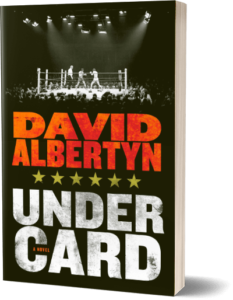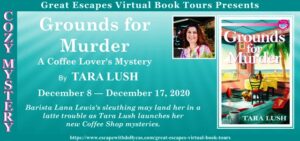You work as a playwright, short story writer, essayist…. how do you know what genre a story should be written in?
I should plead the fifth on this question. I love the philosophy, but I’m a sinful practitioner. It’s all about story of course. How can I best tell it? Generally I say this is a prose story or this is a play, no second-guesses. Does it come down to description, words vs. images? Somewhere on that spectrum a decision is made.
The printed word of prose and poetry is a Buddha like search in the perception of the mind in the sense of where the mind resides. On one raft trip I pulled oar for four clients, a father and his three adult sons, running a hundred miles of a remote, fly in, fly out, Alaskan river. This was a very high tech family, all involved in computers, electronics, or special effects. At the end of the week’s float, an Otter aircraft picked us up on the river, we loaded the rafts, flew to King Salmon and boarded an Alaska Air Boeing 747 to Anchorage. As one of the sons took his seat, he took out a paper back book, began reading, saw me look at him; he looked up, pointed to the book and said, “virtual reality.” No batteries, no electronics, wireless plug in.
A play is visual, movement, lights, scenery, and did I say movement . . . beyond stage pictures the actors’ movements are tools to move action, to send emotion, create illusion. Dialogue can be abundant or sparse. Perhaps this Buddha perception of the mind is outside the body as opposed to prose being the perception of the mind inside the body. Whoa, how about that from cocktail party space filler to the doctorial thesis, or maybe we are overthinking this whole shebang.
I’ve taken a giant step away from the realism school. If I’m on my best the dialogue will be poetic and laden with images. However, I’m currently entranced with movement and minimal sets, that give the actors more responsibility, a challenge in this age of movie technology and special effects. This idea has been latent in my mind since college. I wrote, produced and directed my first play in my senior year. It was a rather sophomoric idea of the fourth wall trapping the actors with vague references to Shakespeare entitled Vomitorium Continuum. Gad! It was surrealistic to a dangerous edge and one audience member, who was not a Drama major, walked out halfway through: my first honest critic. However, my favorite college professor applauded the effort. Since then I have experimented to various degrees; how can it be done with simplicity, cheaper, and put more voltage into the aesthetic distance, give a booster jump to that willing suspension of disbelief.
In 2010 in association with Alaska’s National Artic Wildlife Refuge 50thAnniversary I was part of bringing an original play entitled Wild Legacy (based on the novel Two in The Far North, by Margaret E.Murie) north for it’s debut and an Alaskan tour. Written and produced by the Voices of the South, under the direction of Gloria Baxter (recently retired) out of Memphis, Tennessee, a company that has a history of creating stage productions from novels, I saw the sunrise on the power of movement on stage and how scenes can change and magical things can occur on a bare stage with minimum props, simple costumes and lights used only if you got ‘em. Jere Dye, artistic director and actor needs be mentioned here, he is a genius. As chauffeur and co-trail guide and booking agent the troupe played three Alaska locations and carried everything in their hands and sound effects in their throats with the exception of one guitar. With six books, two Fort Nelson Backpacks, and a sheet they created a tent, a caribou herd migration, a steamboat, and all the bird and animal sounds! I was in the midst of writing a play and stuck in a structural quagmire. The performance of Wild Legacy inspired me to walk out of that bog. My play, Engines of Time, a one act, has had two readings, one in Alaska and one in South Carolina. I’m hoping for a production. It’s in the mail . . . again.
Essays are facts and/or opinions that may wade the shores of rants: one can be rational and introspective or shout out big words—vituperate one with invectives. When I hear the term creative non-fiction (please forgive me) I can’t help but think fresh-frozen, an unfair judgment.
I do not have a graduate degree in creative writing. I found my first publication in high school back when a World War II General was president, which awards me zero credits. It was a surprise, as was my first role in a play as a senior after dropping a chemistry class, but both opened up worlds I hadn’t considered. Since then I have written more journalism (which by golly may sometimes be creative non-fiction) than any other category of writing mainly because it pays in negotiable currency. I drifted away from freelance journalism when I got a job that paid a monthly salary with benefits and a retirement plan. Economically it was a good move and a retirement coup. Recently, in one of those introspective casual conversations a director I frequently work with asked, “What would you be if you had to do it all over?” Without thinking, I said, “I’d be a war correspondent.” It must have been my gypsy subconscious taking roll call. How would Buddha instruct to that outburst? I’d be a horse and mule trainer between assignments. Next life?
Describe your writing process.
I’m a catastrophe. I keep journals in sections: character sketches, names (I have hundreds of names logged, most all true) ideas, potential titles, images on backs of envelopes, scraps of paper, in tiny note books I carry in my shirt pocket, larger notebooks come on trips, coat pockets. It’s a disaster. I’m like a ground squirrel hoarding for winter for a large family, all these little nuts stashed and then I take a time to put them in the big journal, the cache. And then reading: Bears are omnivores they eat almost anything storing up fat for the winter hibernation. I’m seasonally the opposite; I spend winters devouring text like I’m putting on fat to get me through the summer as I spend much of the summer in the bush. History, fiction, magazine articles, philosophy, the bloody news (which is a rich lode of comedy), I nibble through winter like a man who was found starving to death after surviving a shipwreck and now in the land of plenty he steals and hordes food because in his crazed mind all this food can run out, but I have a bun in my pocket and some nuts in my coat. Thank God for winter.
Then, oh dear, what does one do, not next, but now? It’s like having your fully loaded pack string of fifteen mules attacked by ground hornet, packs are scattered in the woods like confetti; it’s a train wreck. You calm down, catch the animals, calm them down and get to work putting the string together.
The ritual: I sit down and step into the world of the story and shut out the world around me. I work five to ten hours at a stretch, initially turning on some light jazz or classical music to work that first sentence that first paragraph to sharpen the hook—the music and the immediate environment slowly fades and then abandons me and I hear only the story. If the hook is evading me I write until I find the beginning. Occasionally, but not often, the beginning could be in the middle of page three, in which case I delete the first two and a half pages and I’m back on the trail dancing like Zorba. The next day I read what I’ve written and edit, edit, edit and continue on. At completion, my wife proofreads.
There is madness in my method.
Having something to work on has never been a problem. I’m always working on something even if it is just in the mind (I text in the mind, not into a telephone).
I constantly recall memories, see images: A homeless woman wearing a garbage bag raincoat walking downtown San Francisco pulling a Louis Vuitton Suitcase became a flash fiction—I entitled the piece “Louis Vuitton in Deer Hide.” It was published in Over the Transom #22; an issue which is in the Tate Modern in London, England.
You live, work, and travel to remote and unique locations, how does your environment impact your writing?
Years ago I was asked that question all writer’s are asked, “What do you write about?” It was a question that the first time I heard it, took me back. As opposed to romance or science fiction, etc. I always thought I wrote literature. One day I said, “Most writers write about people on the planet. I write about the planet with people on it.” Is that a satisfactory answer? Maybe not, but it grounds me. Environment of a place is primary in my work. It’s up to me to find a publisher who agrees with me.
I have a series of short fictional stories based on Alaskan natives (published in The South Dakota Review). I taught school for a few years in the bush, in a Yup’ik village and in an Inupiat village. I also coached basketball teams and biathlon teams with whom I traveled to different villages. I find Alaskan Natives culture instructional to ours. We both have our faults but I think we have more. I don’t see a problem in one’s writing about a culture different from one’s own as long as one is respectful and educates oneself about said culture to the extent that they can. Granted, one will never understand another’s culture to the extent as someone native to it, but we are all equally human. The widest gap between our western culture and the indigenous culture of native Alaskans is how we view our relationship on the planet and our responsibility to each other. In short: Alaskan natives respect the land, know they are a part of it and they respect the creatures on it, we see land and animals as a commodity: manifest destiny, a term I detest. Alaska natives are a sharing culture; our western culture preaches, “I’m number one.” Now, I’m not a new wave, rainbow child, but If I am to be faulted in my Alaskan native stories that weigh heavy toward a sharing culture who consistently help each other as opposed to a culture who mainly come together temporarily when disaster strikes I vote for the former. So far, I’ve not had any complaints from the natives and these stories have seen print. A couple of them are based on true events. I rest my case.
Other categories come from my experience as a packer and guide in the Selway Bitterroot of Montana and Idaho: guiding elk and goat hunters. A couple of years I was a bear viewing and fly-fishing guide in Alaska’s Lake Clark National Park and Reserve. It seems my bear stories would be more marketable if they were essays or journalistic as they do not follow the trend of being about the big, bad bear that attacks anything it sees like an alien beast in a horror movie. I’d like to debunk the myth that the brown/grizzly bear is not the serial killer as advertised. Brown bears are adventurous and curious; their actions are directed by reason and sometime by instinct. They have superior brainpower and guide their day with plan and forethought. They also have a sense of humor. Any one who has scientifically studied these animals will agree, like Enos A. Mills and the Craigheads.
I once fished several hundred yards of a stream with a bear that I had knowledge of for a few months. We were in the stream together and she, we had named her Little Bear, (most likely a 3 or 4 year old) shoved salmon to me and I to her. I did not, repeat: did not, do this as a plan. She came casually into the stream with me. Having knowledge of this bear and knowing the body language that display a brown bear’s temperaments, I went along with the situation, not wanting to disappoint her dance card. Not that I encourage anyone to approach a brown/grizzly bear with idea that they are not a wild animal at the top of the food chain and quite capable of ripping your head off with one paw while they are yawning with the other. One person, who came to Alaska and whose name I won’t mention, became a celebrity due to his ignorance; he was taken in by their intelligent and curious nature but found out by dying that you don’t be an annoyance in a bear’s grocery store or camp on their freeway. It also helps if you can read bear body language and know a bit of bear talk. I think brown bears are great actors. They have great moves. Maybe a play . . . naw.
Check Back February 15th for Part II



